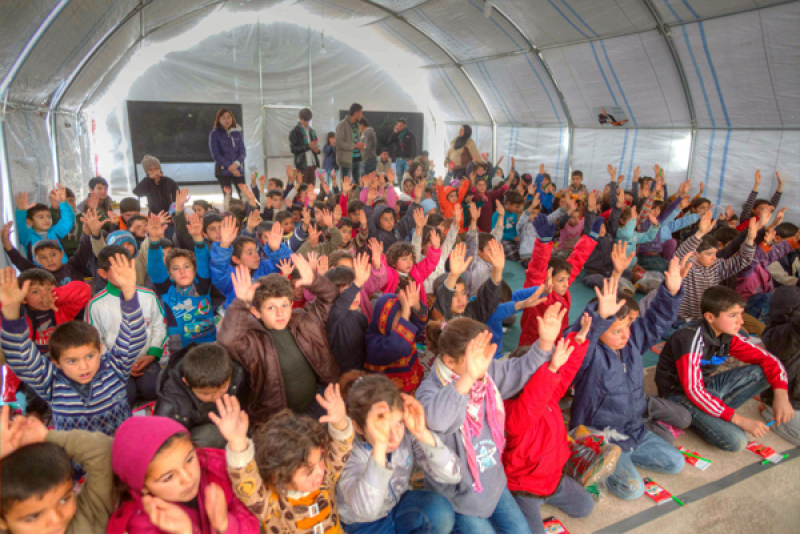
Displaced citizens from war-stricken countries such as Syria and Afghanistan, as well as impoverished Pakistan and India had sought refuge in Turkey and the European Union. Turkey's open door policy has let in thousands of refugees, which the country then reportedly uses as leverage or bargaining chips with the EU.
"Over the last four years or so, there has been a lot of disagreement between Turkey and the European Union," Tasos Ioannidis of AMG International explained, as reported by Mission Network News. The EU is concerned that too many refugees may destabilize European countries, which is exactly why Turkey is planning on letting thousands of refugees cross their borders.
"A couple of years ago, when Turkey first started basically trying to blackmail the European Union, they brought several hundred thousand refugees to the border with Greece," Ioannidis explained. Since then, Greece and the EU tried fighting the surge by building a wall to keep people out.
According to the Financial Times, Turkey has "the world's largest refugee population," with President Recep Tayyip Erdogan once being the "champion of its open-door policy," especially for up to 3.6 million displaced Syrians. However, Turkey's "faltering economy has soured public sentiment towards foreigners," impacting Erdogan's party, causing him to promise that his country would not serve as Europe's "warehouse" for refugees.
Moreover, the EU is "paying Turkey billions of euros to curb migration, including an unspecified amount to secure its eastern border." Asli Aydintasbas, a senior fellow at the European Council on Foreign Relations said that the consequences of the wall is irrelevant, as long as President Erdogan "[looks] tough on migration. Refugees have become a convenient scapegoat for the economic downturn."
Just last week, the United Nations High Commissioner for Refugees Filippo Grandi praised Turkey for its "continued commitment to protecting refugees and asylum-seekers and including them in public services like education, health and livelihoods," the UNHCR reported. Aside from its 3.7 million Syrian refugees, Turkey also welcomed 330,000 others, most of which are Afghans.
"Turkey is an example to the world not only in that it continues to protect millions of refugees, but is also a leader in how it hosts them," Grandi declared. "The Government and people have included refugees in public services, offering important opportunities for them to achieve their potential."
In Turkey, refugees reportedly are given access to public services like education, legal work opportunities and national health care, which Grandi called "real inclusion." He did, however, reiterate that responding to a refugee crisis must be a "global and shared responsibility."
Turkey may also be facing a greater crisis in the face of the Taliban's takeover of Afghanistan. According to Foreign Policy, Turkish citizens have risen up to express their displeasure against "foreign-owned businesses evading taxes, locals being pushed out of their homes and stores, ethnic gangs running protection rackets, and state authorities refusing to enforce the law."
When six nationalist activists called "Angry Young Turks" were arrested over terrorism charges for placing banners that read "The Border is Our Honor," civil unrest grew more intense.
In fact, polls showed that more than 50% of President Erdogan's voters or two-thirds of his nationalist allies and over 90% of opposition voters agreed with the nationalist activists' sentiments. When asked what angered him and his group, one of the nationalist activists quoted President Erdogan's favorite poet Necip Fazil Kisakurek, saying "We became strangers in our own homes, pariahs in our own land."





















